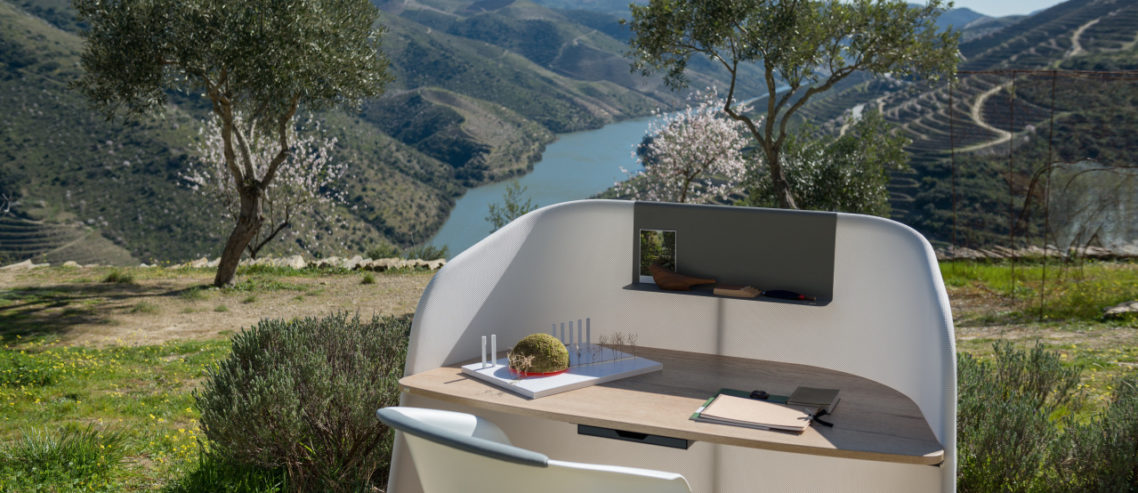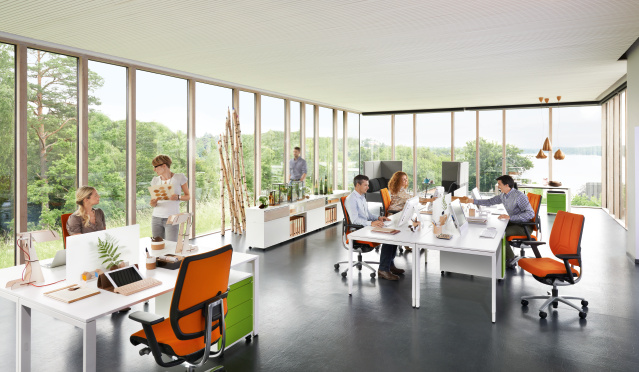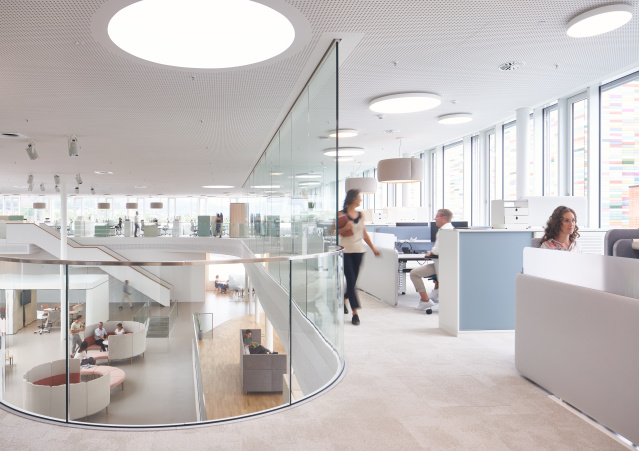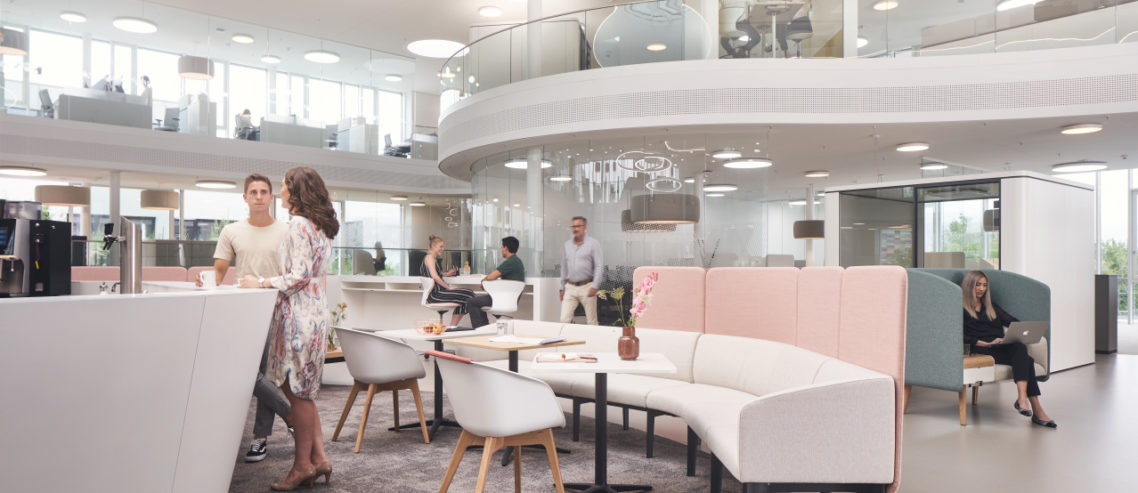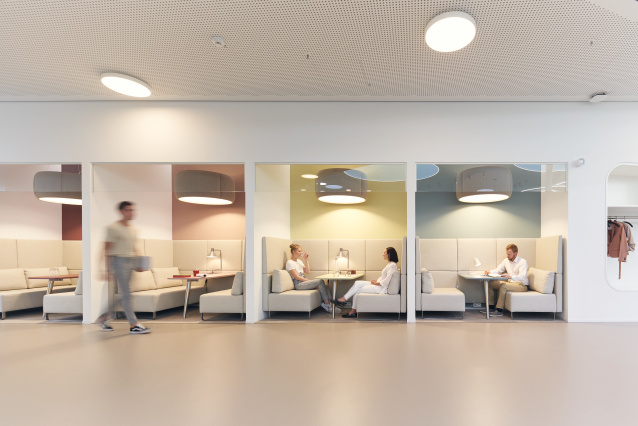Entries Written By Mark Eltringham
How office design can encourage people to do nothing except have great ideas
There is a famous episode of Seinfeld in which the character George is insulted in a business meeting and only thinks of a perfect retort while driving away from the office. This being George, he decides that he doesn’t want to waste his ‘killer line’ so engineers a second meeting so he can use it …
Feeling blue about work? We know the answer to that
Monday 20 January is ‘officially’ Blue Monday in the UK, ‘officially’ the most depressing day of the year for people at work. The anniversary is always met with a great deal of scepticism, largely because it is the brainchild of Sky’s marketing department who came up with the idea to publicise the Travel Channel in …
Agile working and the transformation of office design
The workplace has gone soft and I mean that in a good way. Over the past twenty or more years we have experienced the very welcome development of a much softer aesthetic generally when it comes to the design of offices. This process has accelerated dramatically in recent years as more and more firms have …
A sign of the times in office design
When people talk about the pace of change in the modern world, they often refer to the speed at which technology develops. In fact, almost every aspect of the world in which we live is subject to near continuous change. In the case of office design, the world is shifting very quickly indeed.
Wellbeing is now one of the most important drivers of sustainability in offices
As organisations depend more and more on the skills and knowledge of people for their competitive advantage and growth, so too are they increasingly concerned about the wellbeing of individuals. They may not have a magic wand to deal with the issue completely, but they do have more awareness and a growing number of tools …
A new and simple approach to wellbeing is reshaping the office
Arguably, no workplace subject is more talked about than wellbeing. This is understandable, given the ways work can affect our wellbeing for good or bad and the fact that the subject embraces a wide range of issue and disciplines. Our general wellbeing is defined by our physical and mental health, our relationships (both in the …
Life at the coalface: How the agile workplace first appeared in the mid 20th Century
The idea of diffusion of innovation has become so embedded in our culture, and most recently so associated with the adoption of new technology, that we might assume it happens in predictable ways. The steps between innovators, early adopters, early majority, late majority, and laggards seem intuitive and certain even when their peaks might be …
An office and culture that boosts creativity
Productivity for knowledge workers is not just measured in the amount of work they do, but their results. This can be frustrating when it comes to assessing outputs, especially in a macroeconomic sense for modern service based economies, but it needs to be assessed and we need to establish the factors that help knowledge workers …
To truly make a difference, firms should code ethics in their DNA
There is a theory that when companies talk about issues such as corporate social responsibility they are doing so because it helps them to achieve their business goals. This is the rational commercial thing to do according to people like the famous economist and proponent of the free market Milton Friedman who argued that companies …
How the Dutch pioneered agile working, wellbeing and the world’s smartest buildings
Many of the challenges we face in selecting the right office design models first became apparent during the 1960s as the world adjusted to the first signs of the technological revolution. At the same time, people across Europe were pressing for changes in the way organisations and the economy worked. The advent of formal workers’ …
